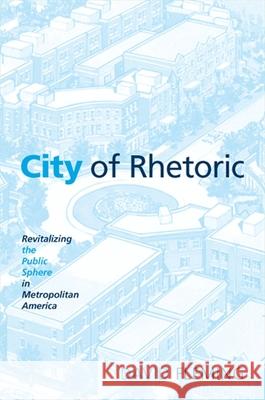City of Rhetoric: Revitalizing the Public Sphere in Metropolitan America » książka
City of Rhetoric: Revitalizing the Public Sphere in Metropolitan America
ISBN-13: 9780791476505 / Angielski / Miękka / 2009 / 346 str.
Combining a detailed case study of Chicago's Cabrini Green urban revitalization project with the concerns of modern political philosophy and rhetorical education, David Fleming examines the relationship between public discourse and the built environment in the contemporary United States. For more than half a century, low-income African American residents of the Cabrini Green public housing project have struggled against the extreme spatial inequality of their metropolitan region. The author examines three different options considered as part of revitalization efforts for the neighborhood: the dispersal of the project's residents into the largely white suburbs of Chicago; the building of a low-rise, mixed-income "urban village" on the same site; and the conversion of one of the original buildings into a democratically governed, not-for-profit housing cooperative.
The author argues that each of these projects involves imagining the physical, socioeconomic, and rhetorical community of the contemporary city in dramatically different ways. Considered together, the projects provide evidence that places still matter in human flourishing, but show that the places of our contemporary landscape are unequal in resources and opportunities, and that our public philosophies support this inequality. Fleming reminds us, however, that these arrangements are plastic and can be redesigned to reflect a more equitable sharing of public problems and resources.










